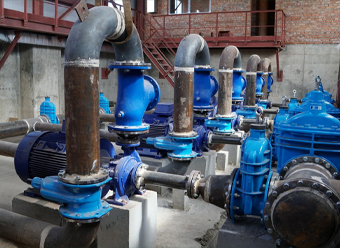Malayalam
- Afrikaans
- Albanian
- Amharic
- Arabic
- Armenian
- Azerbaijani
- Basque
- Belarusian
- Bengali
- Bosnian
- Bulgarian
- Catalan
- Cebuano
- Corsican
- Croatian
- Czech
- Danish
- Dutch
- English
- Esperanto
- Estonian
- Finnish
- French
- Frisian
- Galician
- Georgian
- German
- Greek
- Gujarati
- Haitian Creole
- hausa
- hawaiian
- Hebrew
- Hindi
- Miao
- Hungarian
- Icelandic
- igbo
- Indonesian
- irish
- Italian
- Japanese
- Javanese
- Kannada
- kazakh
- Khmer
- Rwandese
- Korean
- Kurdish
- Kyrgyz
- Lao
- Latin
- Latvian
- Lithuanian
- Luxembourgish
- Macedonian
- Malgashi
- Malay
- Malayalam
- Maltese
- Maori
- Marathi
- Mongolian
- Myanmar
- Nepali
- Norwegian
- Norwegian
- Occitan
- Pashto
- Persian
- Polish
- Portuguese
- Punjabi
- Romanian
- Russian
- Samoan
- Scottish Gaelic
- Serbian
- Sesotho
- Shona
- Sindhi
- Sinhala
- Slovak
- Slovenian
- Somali
- Spanish
- Sundanese
- Swahili
- Swedish
- Tagalog
- Tajik
- Tamil
- Tatar
- Telugu
- Thai
- Turkish
- Turkmen
- Ukrainian
- Urdu
- Uighur
- Uzbek
- Vietnamese
- Welsh
- Bantu
- Yiddish
- Yoruba
- Zulu
Telephone: +86 13120555503
Email: frank@cypump.com
ആഗ . 07, 2024 20:10 Back to list
Optimizing Pump Systems for Efficient Septic Tank Management and Wastewater Treatment Solutions
Understanding Pump Systems in Septic Tanks
Septic systems are vital for wastewater management in areas lacking centralized sewer systems. They effectively treat and dispose of sewage from household plumbing through a combination of natural and artificial processes. A critical component of many septic systems is the pump system, which plays a crucial role in the operation and efficiency of the entire setup.
What is a Pump System in a Septic Tank?
A pump system in a septic tank is designed to move wastewater from the tank to the drain field or other disposal areas. In traditional gravity-fed septic systems, waste flows downhill to the drain field by gravity. However, in situations where the drain field is at a higher elevation than the septic tank or where soil conditions would not allow for adequate drainage, a pump system becomes necessary.
The pump itself is typically submersible and is housed within the septic tank. It is activated by a float switch, which monitors the wastewater level inside the tank. When the liquid reaches a predetermined height, the float switch triggers the pump to engage, transporting effluent to the drain field.
Types of Pumps Used in Septic Systems
There are several types of pumps that can be used in septic systems, including
1. Effluent Pumps These pumps are designed specifically for moving effluent (the liquid wastewater) from the septic tank to the distribution system. They can handle solid particles but are primarily used for liquids.
2. Sump Pumps Though less common in septic applications, sump pumps can be used in instances where groundwater intrusion into the septic system needs to be managed.
pump system septic tank

Importance of Pump Systems
Pump systems are critical for maintaining the functionality of septic systems, especially in challenging terrains. They help prevent backups and overflows, which can lead to environmental contamination and health hazards. Moreover, well-maintained pump systems can extend the lifespan of septic tanks by ensuring that effluent is efficiently moved out of the tank and away from the home.
Maintenance Considerations
To ensure the reliability and efficiency of a septic pump system, regular maintenance is essential. This includes
- Routine Inspections Check the pump and components for signs of wear or malfunction. This should be part of a broader assessment of the septic system.
- Cleaning Screen Filters Many pump systems include filters to prevent solids from clogging the discharge line. These filters should be cleaned regularly.
- Avoiding Overloading the System Limiting water usage during peak periods can prevent overwhelming the pump, which may lead to burnout.
- Professional Servicing It is advisable to engage professional septic system service providers for comprehensive inspections and maintenance, ensuring all aspects of the system are functioning correctly.
Conclusion
In summary, pump systems are an integral part of septic tank operations, particularly in challenging environments where gravity alone cannot facilitate proper wastewater management. Understanding their operation, importance, and maintenance requirements can help homeowners ensure their septic systems work efficiently and effectively, safeguarding both health and the environment. Proper management of these systems not only prolongs their lifespan but also contributes to a sustainable approach to waste disposal in communities lacking centralized sewage treatment.
-
ISG Series Vertical Pipeline Pump - Chi Yuan Pumps Co., LTD.|High Efficiency, Energy Saving, Low Noise
NewsJul.30,2025
-
ISG Series Vertical Pipeline Pump- Chi Yuan Pumps|High Efficiency&Low Noise
NewsJul.30,2025
-
ISG Series Vertical Pipeline Pump-Chi Yuan Pumps Co., LTD.|High Efficiency&Energy Conservation
NewsJul.30,2025
-
ISG Series Vertical Pipeline Pump - Chi Yuan Pumps Co., LTD.|Advanced Hydraulic Design&Energy-Efficient Solutions
NewsJul.30,2025
-
ISG Series Vertical Pipeline Pump - Chi Yuan Pumps Co., LTD.
NewsJul.30,2025
-
ISG Series Vertical Pipeline Pump - Chi Yuan Pumps Co., LTD.|energy-efficient fluid handling&industrial durability
NewsJul.30,2025










